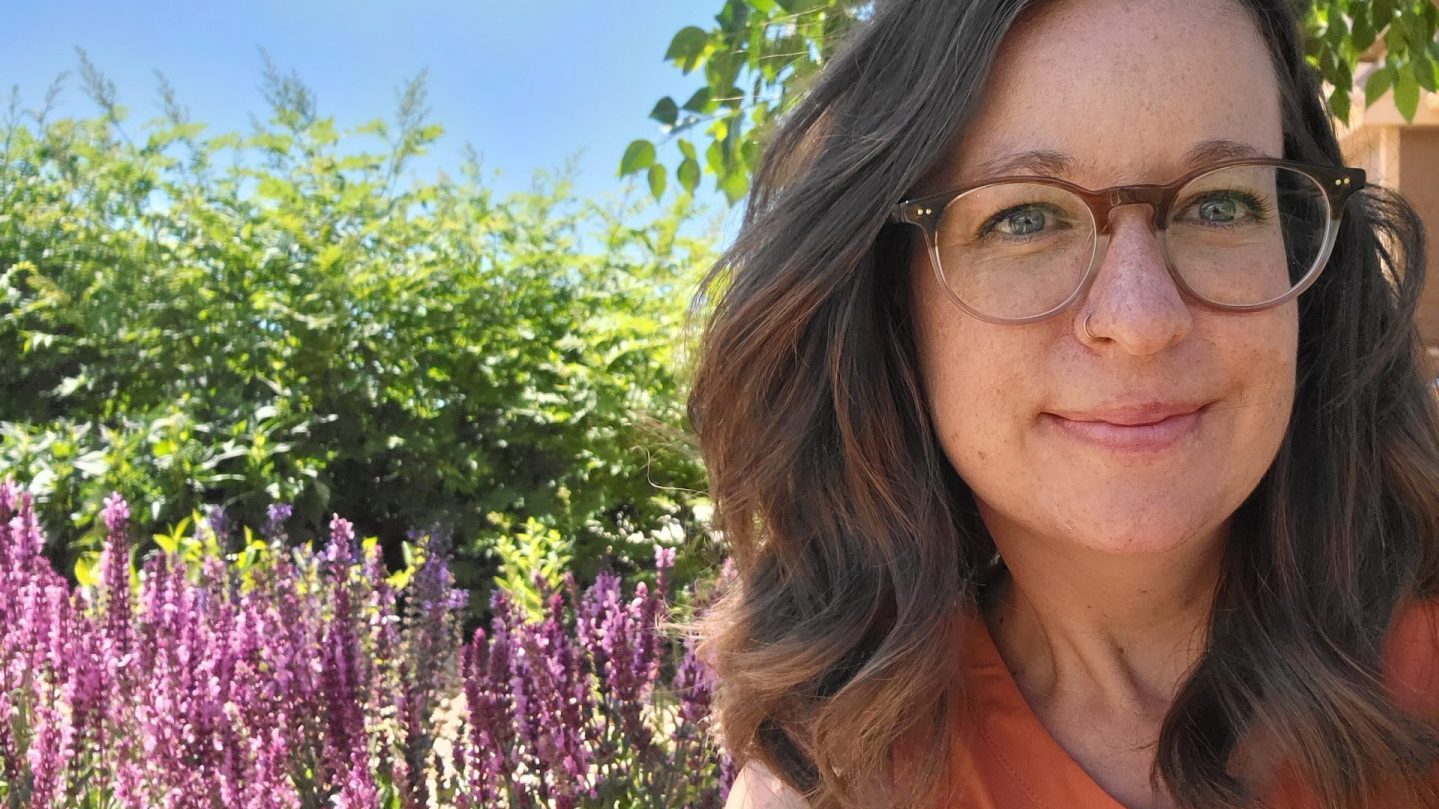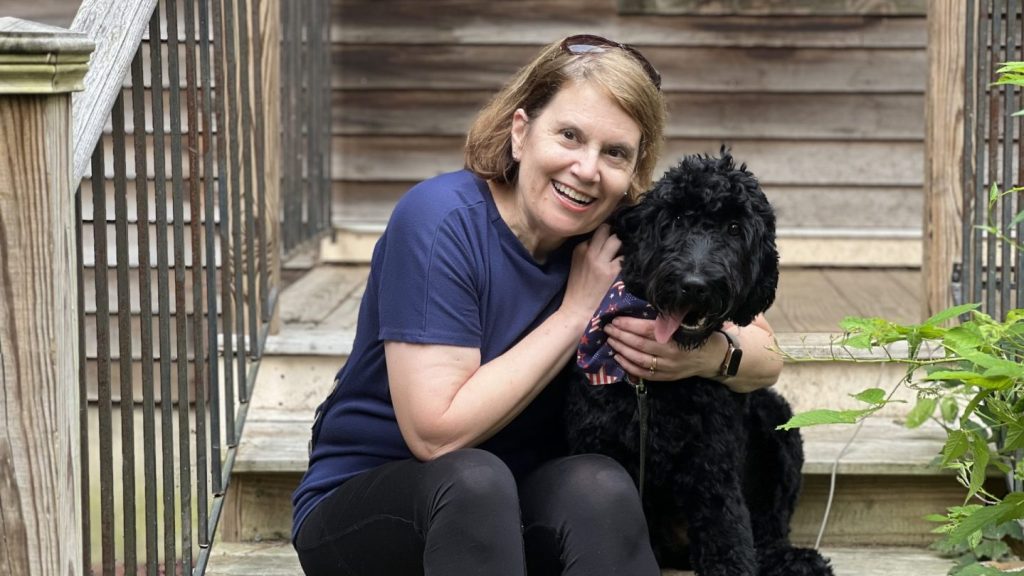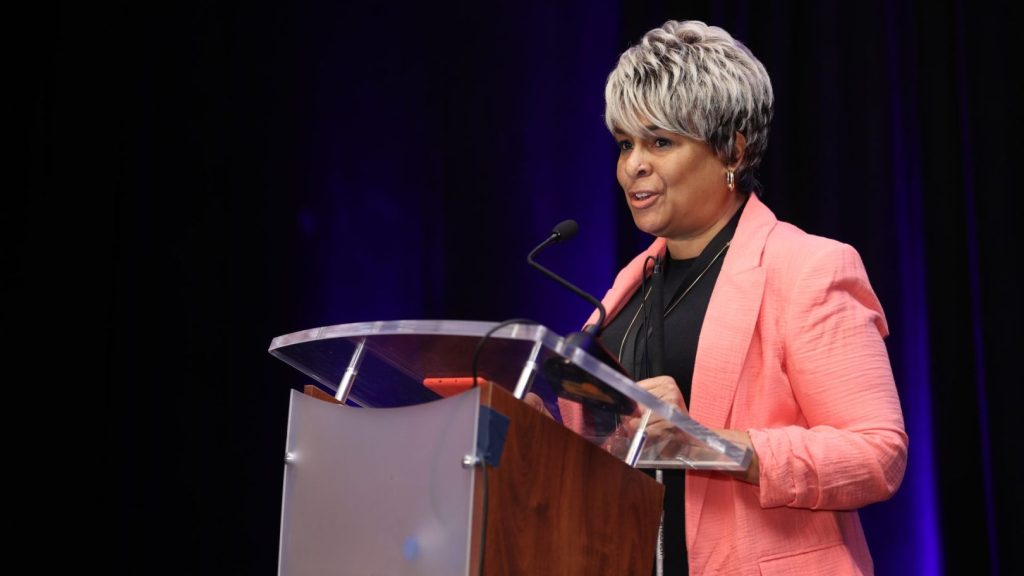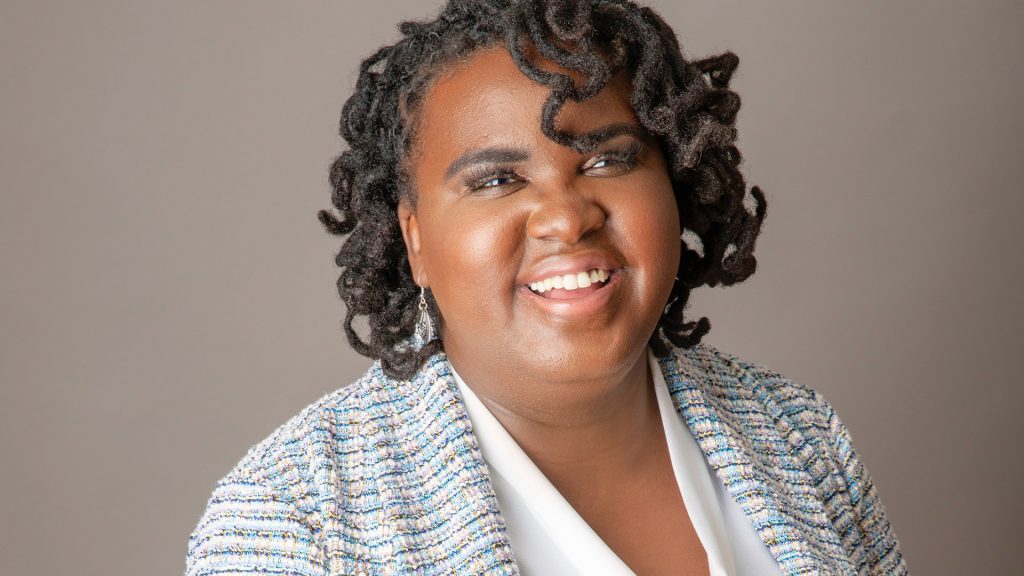The Customer Service team will be unavailable on December 24 and 25. They will return to their normal hours on Thursday, December 26.
CloseMeet APH Scholar Suzie Mahon

APH is excited to recognize Suzie Mahon, nominated by EOT, Leslie Bechtel Van Orman, as one of our 2023-2024 APH Scholars.
Suzie has a bachelor’s degree in communication disorders and an endorsement in early childhood special education from the University of Wyoming. She also has a master’s degree in special education with a focus in visual impairment from the University of Northern Colorado. In 2015, Suzie was introduced to the blindness field when she had a student with CVI on her caseload. “At the time, we did not have a local service provider, and we were contracting with a TSVI in Georgia. While virtual sessions met some needs, there were so many gaps in appropriate support for this student that I didn’t know how to provide,” she said. “I started my master’s in special education with a focus in visual impairment shortly after that so that I could better support him, as well as other students in the community.”
Today, Suzie works as a TSVI, serving the school district, preschool program, and transition student services in Laramie, Wyoming. She also works with students in Rawlins and Lander, Wyoming and helps education agencies across the state through contract evaluations.
Utilizing APH Products
Suzie said, “I have been able to use APH products to support students in all three phases of CVI. The CVI Complexity Sequences Kit is wonderful for assessment, intervention planning, and progress monitoring. The CVI Book Builder Kit has useful items that are not always readily available or easily thought of, such as the magnetic pages. The Light Box Materials are a must-have both for children with ocular vision conditions and for children with CVI, as light is a characteristic that supports visual attention and visual processing. Resources like Vision and the Brain: Understanding Cerebral Visual Impairment in Children and the CVI Companion Guide help parents understand their child’s vision condition, as well as the opportunities and endless possibilities that appropriate and positive educational experiences will bring.”
Additionally, Suzie utilizes the Tactile Book Builder Kit for portable visual and tactile schedules with whole-object, part-object, and 2D images. Suzie Velcros black clothes pins onto the InvisiBoard, which assists with visual stimulation with raised items, to hold a pom-pom or ribbon she can easily move to a preferred visual field or one she is targeting for intervention.
“I love that each week, I see students with a wide range of needs in different types of settings, and each year, I receive referrals for students that have rare conditions or unique visual behaviors,” Suzie said. “In rural areas, TSVIs are referred to as the ‘vision experts,’ but that doesn’t mean it comes naturally, or even with experience! I am constantly learning and keeping updated on best practices in the field so my students and families are getting the best educational and life skill experiences that they can.”
Suzie has learned a great deal from the students and families she serves, including when to teach, when to support, and when to listen. “I am continually humbled by how resilient our children and families are, and how much potential each student has when given the appropriate services and supports,” Suzie said. “I have never met a student that was unable to make progress or show growth.”
Alongside her job duties, Suzie works with the State of Wyoming Deafblind Project through the Next Step Clinic, an evaluation clinic “where families and teaching teams across the state can refer their students for evaluation. These students are typically children with multiple needs and unique behaviors and may not be making sufficient progress in their educational setting,” she explained.
Suzie is also assisting in the development of a Child Find Program for students with deafblindness. She said, “The vision for this program includes increasing early interventionist understanding of deafblindness and its impact on development, increasing identification of children ages birth to three, and providing teams and families with appropriate services and understanding of their child’s developmental milestones.”
Praise for Suzie
EOT, Leslie Bechtel Van Orman, said, “Suzie is seen as a valuable resource across our state by both special education administrators and other TSVIs. When she finds a barrier in her efforts to support the educational needs of students who are blind or have low vision, she comes up with ideas about how to mitigate those issues. This has included a problem-solving structure for O&M Specialists and TSVIs to conduct virtual problem solving, the provision of training on the Communication Matrix Assessment with follow-up coaching support, and the development of support to early intervention providers in the identification of children who are deafblind.”
Looking Toward the Future
“My hope is that children with all types and levels of vision impairment are accepted for who they are in their current settings and can gain meaningful employment and community contributions in the way that is appropriate and accessible for them,” Suzie said. “I hope we can continue to identify children with ocular vision impairments at an early age, and we can find a reliable screening tool for infants and young children with CVI. I hope future teachers can gain more knowledge about teaching children with complex needs, children with deafblindness, and children with CVI. I also hope for more providers in the field.”
More about the Program
Each year, EOTs are asked to nominate someone they feel provides outstanding service in their region. Through a scholarship, awardees attend the APH Annual Meeting in Louisville, KY as a guest of APH. APH pays for all expenses in attending the conference, including transportation to the meeting, conference registration, and hotel accommodations.
Additionally, APH invites scholars to share their experiences with the rest of the users of APH products and services, for example, via webinars and reviewing courses in the APH Hive. During the spring Trustee Advisory Committee Meeting, scholars will be asked to participate in a panel discussion about their service to individuals who are blind or have a visual impairment as well as participate in the review of APH products and services with the committee.
We look forward to meeting the 2023-2024 APH Scholars at our 155th Annual Meeting in October.
Share this article.
Related articles

Meet APH Scholar Jeanne Neu
APH is excited to recognize Jeanne Neu, nominated by EOT, Stephanie Bissonette, as one of our 2023-2024 APH Scholars. Jeanne’s...

Women’s History Month: An Interview with Stephanae McCoy
In honor of Women’s History Month, we’re learning about women making a difference who also have a visual impairment. We...

Black History Month: An Interview with Denna Lambert
Black History Month is a time to honor the contributions of African Americans to the United States. We spoke with...
